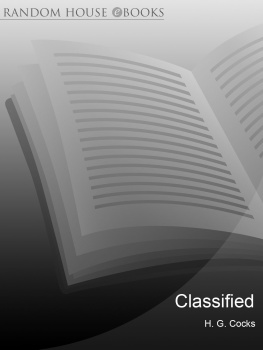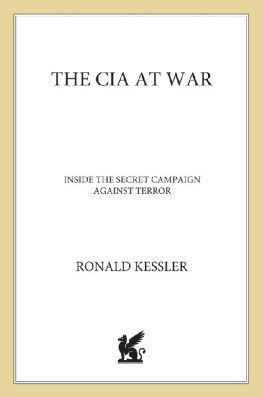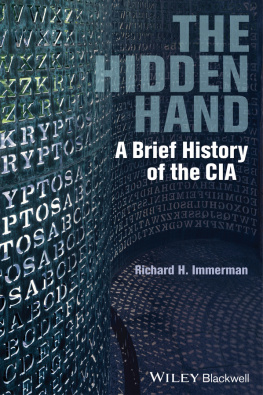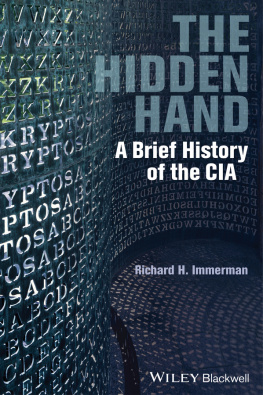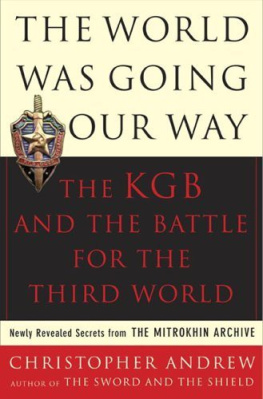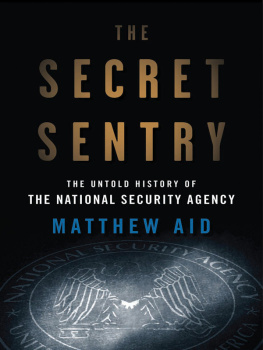Cover
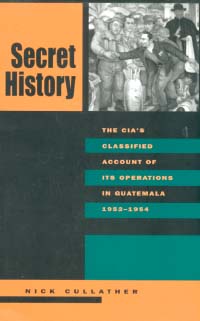
| title | : | Secret History : The CIA's Classified Account of Its Operations in Guatemala, 1952-1954 |
| author | : | Cullather, Nick.; Gleijeses, Piero. |
| publisher | : | Stanford University Press |
| isbn10 | asin | : | 0804733112 |
| print isbn13 | : | 9780804733113 |
| ebook isbn13 | : | 9780585062785 |
| language | : | English |
| subject | Guatemala--History--1945-1985, United States.--Central Intelligence Agency, Guatemala--History--Revolution, 1954, Arbenz Guzmn, Jacobo,--1913-1971, United States--Relations--Guatemala , Guatemala--Relations--United States. |
| publication date | : | 1999 |
| lcc | : | F1466.5.A688C85 1999eb |
| ddc | : | 327.1273/07281/09045 |
| subject | : | Guatemala--History--1945-1985, United States.--Central Intelligence Agency, Guatemala--History--Revolution, 1954, Arbenz Guzmn, Jacobo,--1913-1971, United States--Relations--Guatemala , Guatemala--Relations--United States. |
Page i
Secret History
The CIA's Classified Account of Its Operations in Guatemala, 1952-1954
Nick Cullather
with a new introduction by the author
and an Afterword by Piero Gleijeses
Stanford University Press
Stanford, California
1999
Page ii
This page intentionally left blank.
Page iii
Stanford University Press
Stanford, California
Introduction, Afterword, Notes to Appendix C, and Index 1999 by the Board of Trustees of the Leland Stanford Junior University
Cover illustration 1999 by Banco de Mxico
Fiduciary of the Trust for the
Diego Rivera and Frida Kahlo Museums
Avenida 5 de Mayo No. z, Col. Centro
06059, Mexico City, Mexico
Reproduced by permission.
Printed in the United States of America
Library of Congress Cataloging-in-Publication Data
Cullather, Nick
Secret history: the CIA's classified account of its operations in
Guatemala, 1952-1954/ Nick Cullather; with a new introduction
by the author and an Afterword by Piero Gleijeses.
p. cm.
Includes bibliographical references and index.
ISBN 0-8047-3310-4 (cloth: alk. paper).
ISBN 0-8047-3311-2 (pbk.: alk. paper)
1. GuatemalaHistory1945-1985. 2. United States
Central Intelligence Agency. 3. GuatemalaHistory
Revolution, 1954. 4. Arbenz Guzmn, Jacobo, 1913-1971.
5. United StatesRelationsGuatemala. 6. Guatemala
RelationsUnited States. I. Gleijeses, Piero. H. Title.
F1466.5.A688C85 1999
327.127373'07281'09045dc21 99-24849
CIP
Original printing 1999
Last figure below indicates year of this printing:
08 07 06 05 04 03 02 01 00 99
Page iv
This page intentionally left blank.
Page v
Contents
Introduction: A Culture of Destruction | vii |
Foreword to the CIA Edition | |
Chapter 1: America's Backyard | |
Chapter 2: Reversing the Trend | |
Chapter 3: Sufficient Means | |
Chapter 4: The Sweet Smell of Success | |
Appendix A: PBSUCCESS Timeline | |
Appendix B: Bibliography | |
Appendix C: A Study of Assassination | |
Afterword: The Culture of Fear, by Piero Gleijeses | xix |
Index | xxxv |
Page vi
Photographs and Maps
Photographs
Carlos Castillo Armas in exile | |
Jacobo Arbenz addressing a crowd in Guatemala City | |
Allen Dulles | |
John Foster Dulles conferring with President Eisenhower | |
Maps
Invasion plan, 18 June 1954 | |
Actual invasion, late June 1954 | |
Page vii
Introduction
A Culture of Destruction
This study is a product of the Central Intelligence Agency's "openness" initiative, which for a short while promised to reveal the agency's history to the public. Director of Central Intelligence Robert Gates apologized to the Oklahoma Press Association in February 1992 for the agency's reflexive secrecy and announced that all documents over thirty years old would be reviewed for declassification. Senator David Boren, a member of the Select Committee on Intelligence, applauded, noting that a new understanding of history would "create a climate in which the wisdom of current operations will be carefully weighed."
It seemed a natural, almost predictable announcement, given the history-making events of the early 1990s. Two months earlier, the Soviet Union dissolved, and the new Russian government threw open the archives of the Communist Party in Moscow. The KGB escorted network television crews on tours of its inner sanctum while former spymasters signed book deals in New York. Almost every week newspapers carried revelations from the Soviet files on the Alger Hiss case, the fate of POWs in Vietnam, and other mysteries of the Cold War. If the Communist enemy was going public, how could the United States refuse?
Americans expected not only a "peace dividend" after the Iron Cur
Page viii
tan fell, but a truth dividend as well. Governmental secrecy, at least on the scale that it had been practiced during the Cold War, seemed a relic of the past. Responding to the public mood, Congress passed legislation requiring the release of materials on the assassination of John F. Kennedy and accelerating the declassification and publication of diplomatic records. Oliver Stone's movie JFK turned support for declassification into a fashion statement. Shortly before Christmas 1991, I noticed a sales clerk at Marshall Fields in Chicago sporting a stylish pin that read "Free the Files."
Having spent the previous three years requesting, and for the most part being denied, information on U.S. government activities in the Philippines, I cheered the prospect of a more open CIA. The agency destabilizes history, particularly in poorer nations where rumors of dark plots often blend into a kind of surrogate history in which the CIA is the only real actor. When I arrived in Manila just after a military coup attempt had nearly toppled the Aquino government in 1990, I found many people who believed the CIA had both initiated the coup and then engineered its failure. Secrecy prevents such stories from being challenged, and they gradually harden into fact. Picking up the pieces years later, historians can never be entirely sure of themselves as they try to sort reality from illusion. Openness might remove the veil of mystery which keeps intelligence and espionage in the shadows of history.
Shortly after Gates announced the openness program, the CIA began advertising for historians in the newsletters of scholarly associations. In my last year of graduate school and intrigued by this unusual opening, and I telephoned J. Kenneth McDonald, the CIA's chief historian, to ask about the position. He explained that the History Staff would be at the center of the openness effort. Its eight historians would have complete access to the agency's files. They would locate documents, rank the papers in order of importance, and then pass them to the review group that did the declassifying. Major covert actions had first priority, and agency historians would research and write secret, internal histories of operations in Iran, Guatemala, and Indonesia as part of a process that would end with a public conference at which the history and documents would be released. The job was a career posi
Next page

